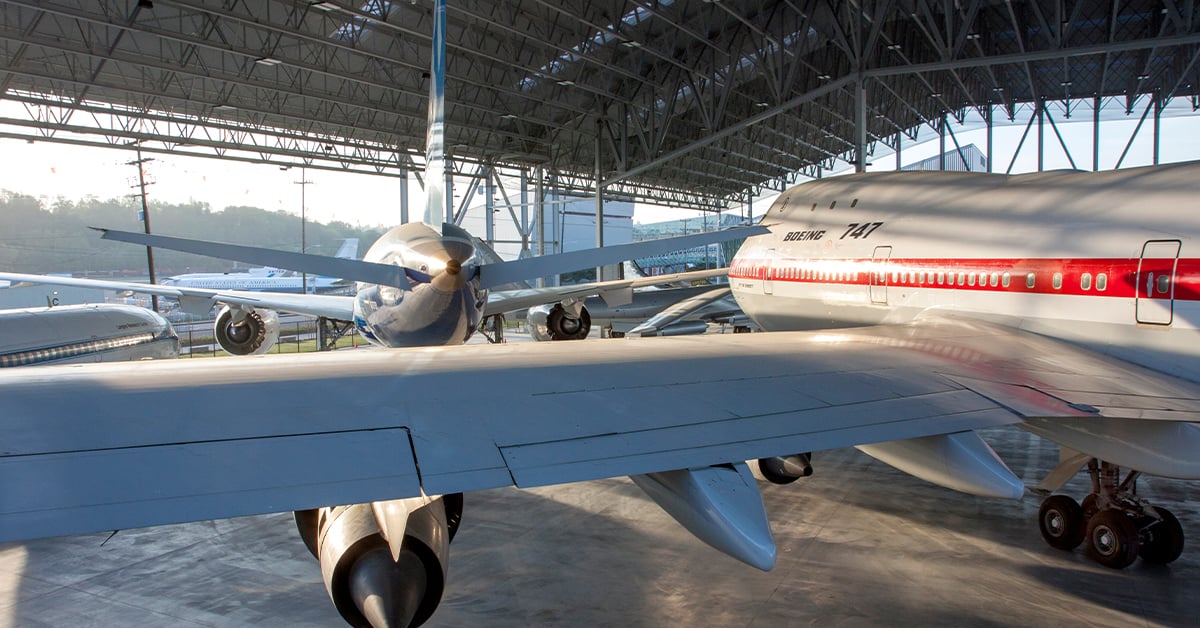Five Types of Engineers in Aviation
When it comes to flight, it takes more than just pilots to get a plane off the ground. Engineers from different backgrounds play vital roles in building and maintaining aircraft. Some join the aviation industry with a degree related to aerospace. Others transfer skills from different jobs. Here are five types of engineers and the roles they play in the story of flight.
Industrial Engineer
Industrial engineers plan and improve how planes are made. They help design how work is done, set up workspaces and create rules to make sure the work is done well. They also support the teams that make and move products.
An industrial engineer works to make the whole process better. They try to reduce waste and make the job easier for workers. In the future, this job may focus more on helping the environment by finding ways to reuse materials and minimize waste.
It is important for industrial engineers to talk to other teams. Everyone needs to work together when making big changes. They also need to use facts and data to make good choices. Most industrial engineers study industrial or mechanical engineering in school.
This job is a good fit for people who like to plan things from start to finish, work with others and are big-picture thinkers.
Structural Engineer
Structural engineers design the frame of an airplane so it can stay strong and safe while flying. They think about how much the plane will carry and how the weight is spread out. Their main job is to make sure the plane can fly safely and handle the stress of flying.
This job takes a lot of planning, designing and testing. Engineers must make sure the plane can handle things like wind, takeoff and landing. One of the hardest parts is making the plane strong enough to fly but also light enough to get off the ground, even when it is full of people or cargo.
Most structural engineers study subjects like engineering, technology, computer science, math, physics or chemistry. They also learn how CAD (computer-aided design) programs to help with their work. People who pay close attention to details and care about safety and accuracy are usually a good fit for this job.
Avionics Engineer
Avionics engineers work on the electrical systems in airplanes. Engineers design and check electrical diagrams to make sure they follow safety rules from the Federal Aviation Administration (FAA). They also use CAD programs to plan how the wires should be set up in the plane.
They work with teams who do other roles, like flight testing, building the planes and helping customers. Avionics engineers fix problems, support old systems and set up new ones. They also help test the systems during flights and keep important records up to date.
Most avionics engineers study electrical engineering in college. Over time, they learn the safety rules for airplane systems. This job is a good fit for people who like solving problems, working with technology and following clear rules.
Acoustics Engineer
Airplanes can be very loud because of their engines and the fast air moving around them. Acoustics engineers work to make the noise quieter. This helps passengers have a nicer flight and makes sure the plane follows rules from the FAA.
They use computers to find where the noise comes from and how the plane vibrates. Then, they design ways to reduce the noise inside and outside the plane. Making planes quieter helps people on the plane, the flight crew, and animals and people living near airports. Reducing noise near airports is hard work, but acoustics engineers help make it better, one plane at a time.
Most acoustics engineers study physics or engineering in college. This job is good for people who like solving problems and paying attention to tiny details.
Sales Engineer
An aerospace sales engineer sells airplanes to customers. These customers can be airlines, the government, the military, or private owners.
One challenge is explaining the airplane in simple words. They need to help customers understand the technical details without using confusing language. Often, the airplane is still being built, so sales engineers use drawings and plans to show what the plane will look like.
Sales engineers need to be good at talking to people and know a lot about how airplanes work. Most sales engineers have experience in sales and studied aerospace, engineering, or aviation in school. This job is good for people who are friendly, like to travel and are good communicators.
It takes an entire team of skilled professionals to make flight possible, including many types of engineers who design, build, and support every part of an aircraft. These behind-the-scenes roles show just how many exciting careers exist in the world of aerospace.
Want to explore more amazing jobs in flight?
Find us on Facebook, Instagram and LinkedIn where we are highlighting 30 Jobs in Aerospace in 30 Days during the month of September!
